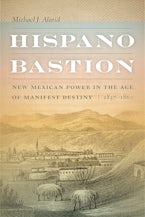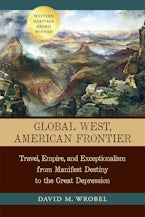- Home
- history
- social science
- Untangling a Red, White, and Black Heritage
Untangling a Red, White, and Black Heritage
A Personal History of the Allotment Era
Published by: University of New Mexico Press
Examining the legacy of racial mixing in Indian Territory through the land and lives of two families, one of Cherokee Freedman descent and one of Muscogee Creek heritage, Darnella Davis's memoir writes a new chapter in the history of racial mixing on the frontier. It is the only book-length account of the intersections between the three races in Indian Territory and Oklahoma written from the perspective of a tribal person and a freedman.
The histories of these families, along with the starkly different federal policies that molded their destinies, offer a powerful corrective to the historical narrative. From the Allotment Period to the present, their claims of racial identity and land in Oklahoma reveal inequalities that still fester more than one hundred years later. Davis offers a provocative opportunity to unpack our current racial discourse and ask ourselves, "Who are 'we' really?"
Darnella Davis is a lifelong artist, writer, teacher, and scholar. Her publications have focused on education reform and equal opportunity. Born in Oklahoma and raised in Detroit, Michigan, Davis now lives in Washington, DC.
"As accessible as it is engrossing . . . Untangling a Red, White, and Black Heritage aids understanding of who the nation is, both in the past and in the present."--Brandy Thomas Wells, Chronicles of Oklahoma
"In Untangling a Red, White, and Black Heritage, Darnella Davis chronicles a moving personal quest and a surprising family saga that contribute new insights for Indian Territory and Oklahoma histories. We still have very few stories--let alone full-length studies--written by descendants of Cherokee, Creek, Choctaw, Chickasaw, and Seminole freedpeople. This original and thought-provoking contribution to the literature is therefore precious. . . . In sum, Untangling a Red, White, and Black Heritage, a labor of love by an author for her family, enriches a growing academic and public conversation about Afro-Native histories and experiences."--Tiya Miles, Native American and Indigenous Studies (NAIS)
"Davis evocatively details family memories of the deeply problematic Dawes allotment process. . . . Family memories such as this one--highlighting the diversity of ways in which individuals chose to navigate this complex moment--demand scholarly attention."--Kendra T. Field, Western Historical Quarterly
"Davis's book is part family genealogy, part academic text and a completely sobering look at how former black slaves of Native American tribes, and mixed-race descendants, have been treated. . . . In the end, the study is a fascinating exercise in personal identity and how we regard who we are."
--The Washington Post
"The language and the methodology clearly link this book to what was once called 'the new social history.' Maybe it is time to revisit 'the new' and see the outcomes of that intellectual movement in how we 'do' and how we understand history. Untangling a Red, White, and Black Heritage would be a good place to start."
--The Independent Scholar
List of Illustrations
Family Tree
Voices
Acknowledgments
Chapter One. Allotment
Chapter Two. The Thorntons and the Bowlins
Chapter Three. Tom Adams and His Descendants
Chapter Four. Who We Are
Appendix A. The Thornton/Bowlin Cherokee Application Transcripts
Appendix B. Chronology
Appendix C. List of Documents from the National Archives, Fort Worth
Appendix D. Adams Land Allotments
Bibliography
Index










